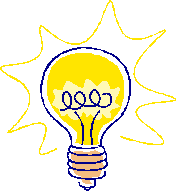
What is emotion? The scientist Edward O. Wilson has defined an emotion as 'the modification of neural activity that animates and focuses mental activity.'
Primary emotions - According to psychologists, there are six basic emotions, that are common to all cultures : Happiness, sadness, fear, anger, surprise and disgust.
Social emotions - Ambition, contempt, embarrassment, envy, guilt, jealousy, pride, shame and sympathy
Is emotion physical ? Physiological changes in the body can be monitored as evidence of certain emotional states. Emotions are affected by our physical state and our physical state, even our health is affected by our emotions.
James-Lange theory - which states that if you remove all the physical symptoms, the corresponding emotion disappears...
The role of beliefs - Besides being closely connected with our bodies, our emotions are also affected by our beliefs.
Emotions as an obstacle to knowledge - Strong emotions can sometimes distort the three other ways of knowing - perception, reason and language
Rationalisations - In the grip of emotions, we tend not to reason in an objective way, but to rationalise our pre-existing prejudices.
Emotions as a source of knowledge - Psychologist Antonio Damasio speculates that emotions help us to make rational decisions about things by narrowing down our options so that we can choose between a manageable number of them.
Reason and emotion - Aristotle was one of the first to suggest that emotions can be more rational or less rational.
Is emotion in opposition to reason ? To some extent, emotion does oppose reasoning in our responses to many situations.
Emotions and cultural self - Even our sense of self, some researchers argue, is influenced by our culture, and that our way of conceptualizing ourselves affects our experience of emotions
Emotion through language - The ambiguity of of our words increases significantly when we call an emotion by a name which may or may not mean the same thing to different people
Emotional quotients and multiple intelligences - Emotional quotient is described as the degree of control a person has over his or her emotions. As described by Howard Gardner basic intelligences are musical, bodily-kinesthetic, logical-mathematical, linguistic, spatial, spiritual, interpersonal, intrapersonal.
Reference:
Dombrowski, E., Rotenberg, L. & Bick, M., 2013. In Theory of Knowledge. Oxford: Oxford University Press.
Are emotions universal? Can/should we control our emotions? Are emotions the enemy of, or necessary for, good reasoning? Are emotions always linked to belief?
The naturalistic view of emotions is that they are the products of natural processes, with physiological causes and effects. One supporter of this view was Darwin, who believed that emotions are purely physiological and therefore universal and experienced across all cultures. However, there seem to be many examples of culturally bound emotions, for example, the Chinese notion of “sad love”. The opposite view is therefore that of the social constructionists, who argue that emotions depend on a social consciousness, and have no natural basis at all. For example, emotions such as shame seem to presuppose a notion of right and wrong.
Emotion has sometimes been regarded as an unreliable way of knowing. Emotions have, for example, been criticized as being irrational obstacles to knowledge that distort our picture of reality. However, others believe that not only do emotions help make sense of social and cultural experiences and behaviours, but they are also the source of social, ethical and political knowledge by helping us form an understanding of the world around us.
from: https://ibpublishing.ibo.org/exist/rest/app/tsm.xql?doc=d_0_tok_gui_1304_1_e&part=2&chapter=3


'The mind leads, the emotions follow' Ayn Rand
'Anger is never without a reason but seldom a good one' Benjamin Franklin
'Feelings are not supposed to be logical. Dangerous is the man who has rationalised his emotions' David Borenstein
'Nothing great is accomplished in the world without passion' Georg Hegel
'Man is a rational animal who always loses his temper when called upon to act in accordance with the dictates of reason.' Oscar Wilde
'Emotions are not just the fuel that powers the psychological mechanism of a reasoning creature, they are parts, highly complex and messy parts, of this creature's reasoning itself.' Martha Nussbaum
'Feelings are not substances to be discovered in our blood but social practices organized by stories that we both enact and tell.' Michelle Rosaldo
A series of stories that show how to use words in a positive and productive manner that will inspire and uplift others. Expressing your emotions.
Explains the two systems that drive the way we think; system one is fast, intuitive, and emotional, and system two is slower, deliberative, and logical and discusses how the two systems shape our judgments and decisions.
Improve your emotional intelligence and you improve your ability to understand and manage emotions. You can think clearly and creatively, manage stress and challenges, communicate well with others and display trust, empathy and confidence.
Examines the role of emotional intelligence in leadership, presenting actual CEOs and managers as examples and describing a process that helps leaders inspire and motivate, increase performance, and lead resonantly.
Read Chapter 8 about Emotions and Learning.
Draws from the writings of turn-of-the-century French novelist and critic Marcel Proust to provide lessons on how best to live life, discussing topics such as expressing emotions, being happy in love, developing good friendships, and the use of time.
Relates tips and facts about human behavior, including the five senses, emotional reactions, verbal and nonverbal communication, and the intricacies of human interaction.
see Motivation and Emotion page 460
Available in the Secondary Library
Shows how various artists have captured and depicted different emotions and expressions.